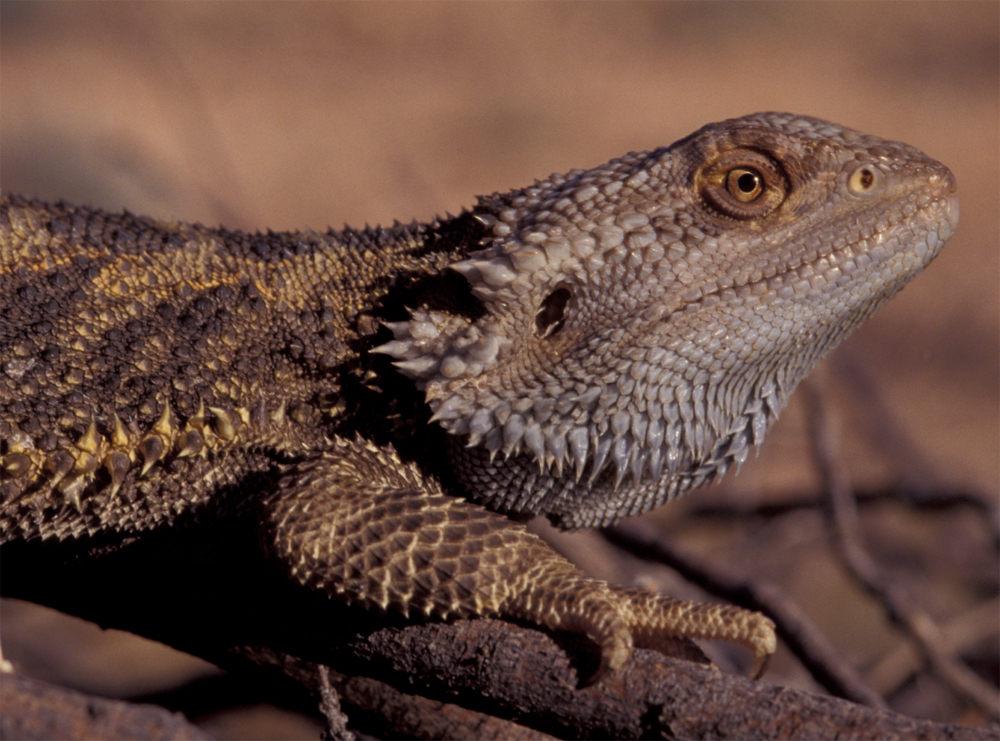Claudia Doman
1 November 2016: Finding the master sex determining gene in a reptile and boosting spatial reasoning skills for students in disadvantaged communities are the focus of two University of Canberra research projects which have obtained national funding grants.
The University of Canberra received two prestigious Australian Research Council (ARC) Discovery Project grants worth more than $1.5 million.
Distinguished Professor in Applied Ecology Arthur Georges will lead a research team to investigate the interactions between genes responsible for sexual development in vertebrates, using a dragon lizard as a model species.
They will try to discover how a master sex determining gene is regulated differently in males and females as well as identify what are the drivers for transitions between genetic and environmental sex determination.
“We are interested in knowing how these genes interact in determining sex in vertebrates,” Professor Georges said. “Since reptiles show astonishing diversity in these interactions, where better to look than in them?”
The project will show how temperature reverses sex determination in dragon lizards, which could show how climatic extremes affect the biology of climate sensitive reptiles and understand their vulnerability to climate change.
The research, which received a Discovery Project grant worth $1,006,500 dollars, will be led by the University of Canberra’s Institute for Applied Ecology (IAE). Other institutions involved are the University of New South Wales, La Trobe University and CSIRO.
University of Canberra Centenary Professor Thomas Lowrie and Professor in Education Robyn Jorgensen received $541,000 to better understand the influence of spatial reasoning on school mathematics.
Spatial reasoning, which allows you to visualise three-dimensional objects in your mind and manipulate these images mentally, is a good skill to have when generating solutions in some fields such as architecture, design, science or engineering.
However, not all students develop these skills, which hinders their learning opportunities. The team will look into improving the acquisition of these skills, particularly among disadvantaged students.
“Spatial reasoning is an important area of the mathematics curriculum that impacts on students' facility to understand their location in the physical world and their visualisation and manipulation of objects,” Professor Jorgensen said.
“For our most disadvantaged students, opportunities to develop such reasoning skills are limited—they are typically not taught in schools. The consequences of low numeracy and Spatial-Reasoning are profound in terms of learning mathematics, learning in general and their adult life.”
The University's Professor of Environmental Science Bill Maher was also successful in receiving an ARC Discovery Project grant for his work investigating the formation of cement in coral reefs.
Professor Maher who is also a part of the IAE, will examine how coral reefs use high-magnesium calcite as cement and how the crustose coralline algae (red algae), which creates the cement, also controls its dissolution by ocean acidification.
This study which is led by The Australian National University attracted $393,000 in funding.
Another IAE researcher, Dr Peter Unmack was also part of a successful group of scientists who have received $900,000 under the ARC's Linkage Infrastructure, Equipment and Facilities grants.
The project which is led by the University of New South Wales aims to continue the access of Intersect’s computational researchers to the National Computational Infrastructure peak supercomputing facility.
The supercomputer facility is touted by the successful applicants as key to allowing researchers around Australia to tackle major problems in national priority areas including energy, health, and environmental change.




